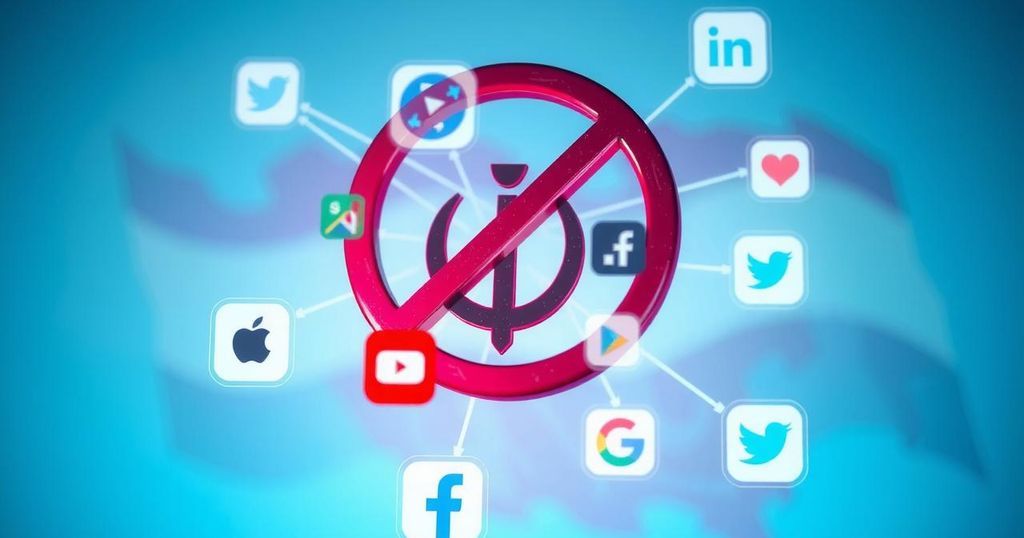Iran’s Supreme Council of Cyberspace has lifted bans on WhatsApp and Google Play, indicating an initial step towards broader internet freedom. This decision reflects the current government’s promises for improved connectivity; however, substantial restrictions on other platforms remain. Tensions are evident among lawmakers who oppose easing filtering measures, underscoring the complexity of digital governance in Iran.
On Tuesday, Iran’s Supreme Council of Cyberspace officially lifted restrictions on WhatsApp and Google Play, marking a substantial initial step towards broader internet accessibility. This decision aligns with the government’s commitment to enhance connectivity and open access to international platforms. Former Foreign Minister Javad Zarif and academic experts have commented positively on this move, viewing it as a precursor to further reductions in internet filtering. However, critics emphasize that numerous platforms remain under restrictions, necessitating additional reforms for comprehensive internet freedom.
Iran has long faced domestic and international scrutiny regarding its strict internet policies, often resulting in a reliance on virtual private networks (VPNs) among the populace, which has led to a burgeoning black market. Despite the recent development, exact details regarding other potentially unblocked platforms remain unclear, although the possibility of easing restrictions may signal a significant shift in Iran’s digital policy. A multi-phase plan has been introduced, with aims to include frameworks for platforms like YouTube and Telegram, emphasizing restricted access in public institutions.
Nonetheless, tensions are evident as 136 members of Iran’s parliament publicly opposed these easing measures, deeming them detrimental to national security in the face of foreign influence. Polls indicate that while Telegram and Instagram remain the favored social networks, uncertainty exists regarding the authenticity of these surveys in a heavily filtered environment. The government’s narrative seems conflicted, as Communications Minister Sattar Hashemi acknowledges the undesirable nature of filtering practices, suggesting ongoing efforts for improvement.
In a holistic view, Iran’s efforts to enhance digital access illustrate the complexities of balancing governmental authority and public demand for broader connectivity. As plans unfold leading to gradual alleviation of restrictions and potential restructuring of the internet ecosystem in Iran, the political landscape remains tense and will require careful navigation toward reform.
The recent announcement by Iran’s Supreme Council of Cyberspace signifies a crucial moment in the nation’s internet policy, a domain that has faced significant constriction for over two decades. The strict filtering of platforms such as Facebook, Twitter, and Telegram has historically led to widespread criticism both domestically and internationally. The current administration’s pledge for more open access to global platforms responds to growing public outcry for digital freedom and accessibility. This shift, however, is fraught with complexities, as it encounters legislative pushback and paradoxical statements from various political figures, making it imperative to understand the broader context of governance in relation to cyberspace in Iran.
The lifting of the bans on WhatsApp and Google Play by Iran’s Supreme Council of Cyberspace marks a potential turning point for the country’s internet policy, suggesting a commitment to expand online access. While positive responses from officials and academics herald this development, the resistance from parliament and the continued restrictions on other platforms reveal the ongoing challenges Iran faces in reconciling governmental authority with the public’s desire for an open digital environment. Future actions and reforms will be critical in shaping the trajectory of internet usage in the country.
Original Source: www.intellinews.com






